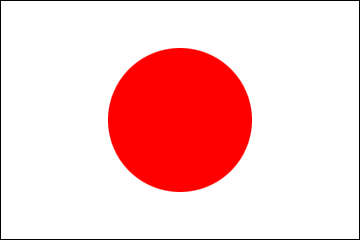第148回WHO執行理事会の健康危機に関する議題(14.1及び14.2)における日本政府代表団のステートメント(2021年1月18日19日)
令和3年2月8日
on the health emergency agenda( 14.1 and 14.2)
in 148th WHO Executive Board
Agenda 14.1 COVID-19 respons
Thank you chair.
Japan welcomes the report submitted by the secretariat.
We appreciate WHO to play an important role to coordinate international response in the current situation.
The international team of scientists has arrived in China to start research on origins of the virus and transmission route to human. We wish to reiterate the importance of the international expert team to be able to access all the necessary studies and information to conduct a scientific, objective and transparent investigation. We anticipate that the investigation fully achieves the intended purpose and discovers scientific findings.
Here, I have 3 points to highlight.
First, we appreciate weekly briefings and guidance provided by the Secretariat, and in this regard, we request the Secretariat to continue to provide consistent information based on science and evidence.
Second, Japan believes it is necessary to review and clarify the role of WHO in the event of public health emergencies and strengthen its transparency and accountability. We hope the WHO maintains its central role in overall coordination, swift norm setting, and technical advice during a health crisis.
Furthermore, in terms of operation, resource mobilization, research and development, we hope the WHO to enhance strategic collaboration with other UN agencies such as UNICEF and UNDP, philanthropies, civil society, and the private sector considering the frameworks including ACT-A.
Finally, Japan wishes the WHO to continue to support essential health services and preventive public health measures and to strengthen health systems during COVID-19 response.
Thank you chair.
Agenda 14.2 WHO’s work in health emergencies
Thank you chair.
We appreciate IHR review committee, IOAC, IPPR and GPMB to report their findings.
Japan co-sponsors the decision proposed by EU at the EB148, “WHO’s work in health emergencies - Strengthening WHO’s global emergency preparedness and response”.Especially, regarding IHR, some questions about the current regulations and operations of them were raised.
Bearing these in mind, to prepare better for the next pandemic, in line with promoting Universal Health Coverage, I have 3 points to raise.
Firstly, the member states need to ensure and strengthen the role and functioning of IOAC as a legitimate oversight body for WHE.
Secondly, the member states should consider strengthening networking and early reporting mechanisms during crisis-free times to enable swift initial response.
Thirdly, it is important to strengthen surveillance capacities during crisis-free times including collaboration with member states and regional crisis management centers.
Taking this opportunity, I would like to present relevant development on global health in Japan.
Recently, recommendation on strategic expansion of international collaboration scheme and health ODA have been submitted which was created at a public-private committee consisted of Diet members and technical experts in Japan.
Based on this recommendation, Japan is comitted to contribute to the health for all people in the world through more effective and intensified international collaboration in health, including contributions to the reform of the global health framework which emerged from the response to COVID-19.
The intended contribution includes promoting UHC at global level through strengthening quality, resilient and inclusive health system and sustainable health financing, and also through strengthening multi and bi-lateral cooperation with a consistent strategy.
Thank you chair
